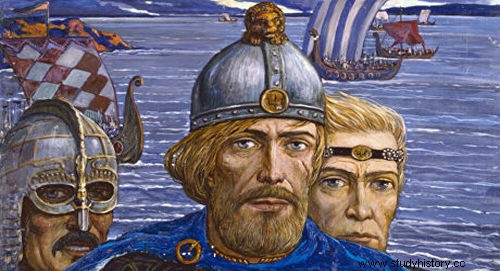
The fall of kyiv dates from 1240 with the growing Mongol domination. Due to its impractical succession system, Kyiv is fragmented and, therefore, decentralized. Its power is then not strong enough to resist the invasion and kyiv can no longer defend itself against the nomads of the steppe. Its weakening is felt on the trade side:the commercial axis of the Varangians goes to Constantinople, it is soon deteriorated by the appearance of new commercial axes across the Mediterranean. kyiv must also face constant attacks. Indeed, wars are fought on all fronts by the Pechenegs, the Khazars and the Mongols. There is much destruction on a large scale, with new enemies appearing throughout the 13th century. The city of Yurev will be taken.
From then on, the role of the cities grew as that of the princes decreased. Most cities become independent, like Novgorod, and town assemblies become more important than the princes themselves. The latter are however those who direct the administration, the army, as well as the contingents to be provided and other functions. In kyiv, the prince is surrounded by a group that forms the ruling class of the country:this group appears under the term of muzhin in Russian law. The prince consults them and collaborates with them. But these urban assemblies are in fact a meeting of the vietché - popular assembly - around the sound of the bell, concerning important decisions to be taken by common agreement but which end in conflicts:it is nevertheless a form of democracy. In the cities republics, in particular in Novgorod where Posadnik, the mayor of the city, decides on the taxes according to the Slavic communities. These vietches will disappear with the loss of the independence of the cities, and the autocracy of Moscow.
